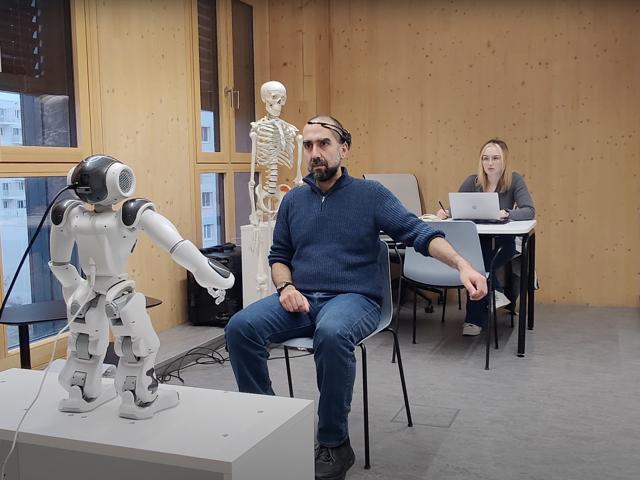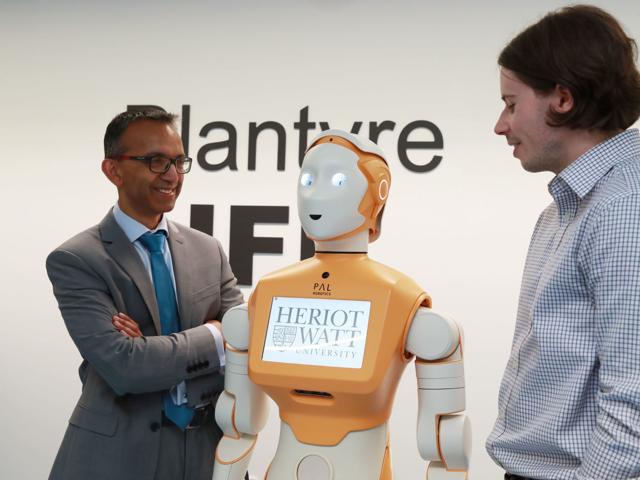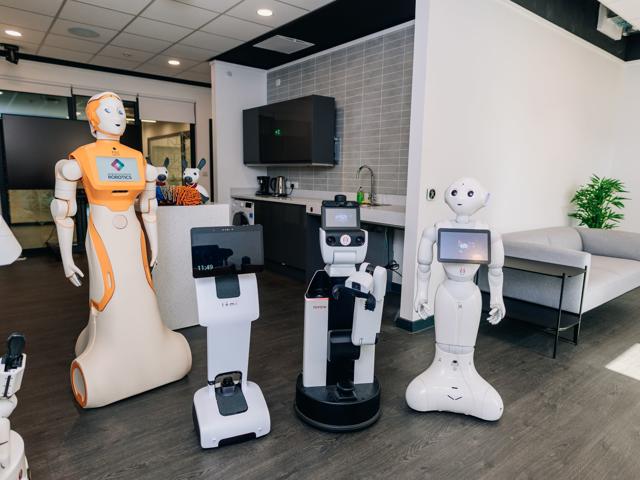Human-robot interaction
Our Human-Robot Interaction labs are specially-designed reconfigurable experimental spaces for studying how humans interact with and respond to robots. Research in the group ranges from conversational robots with multimodal language learning to the use of sensors and IoT (Internet of Things) to provide assistive living support and monitor wellbeing. The team address scientific and technical challenges that underpin the next generation of user-centred healthy ageing and independent living systems, including how to build human trust in robots to encourage adoption.
One of the central aims of HRI research is to build trust between humans and robots. This is achieved by focusing on intuitive interfaces, clear communication systems, and adaptive behaviours that make robots easier to understand and use. For example, our conversational robots can assist with tasks in healthcare or elderly care, providing support while also responding to emotional cues. These systems promote independent living and improve the quality of life for vulnerable populations, particularly through projects like those undertaken in the Laboratory for Robotic Assistive Living (LARA), where technologies are tested in real-world environments.
Collaboration with social scientists, designers, and healthcare professionals ensures that our HRI technologies are developed with a holistic understanding of human needs. By fostering trust, our work aims to make robotics an accepted and valued part of everyday life, improving social and economic outcomes.
Our areas of expertise

Esteemed ELLIS Fellowship for AI Professor Oliver Lemon
Professor of AI Oliver Lemon, has been named a Fellow by the European Laboratory for Learning and Intelligent Systems (ELLIS), a pan-European network of AI centres of excellence.

Expo City Dubai and Heriot-Watt University collaborate to create UAE Robotarium
Scotland and the United Arab Emirates are collaborating to launch the first Robotarium in the Middle East, driving innovation in robotics and artificial intelligence (AI).

Robots help guide self-managed rehabilitation for stroke and brain injury survivors
Robots aiding upper limb rehabilitation for stroke and brain injury survivors have been successfully trialled in Vienna, Austria by researchers from the National Robotarium.

The National Robotarium and Blantyre LIFE: The future of robotics-assisted care
The National Robotarium and Blantyre LIFE are working together to advance development of the next generation of assistive robotics for the health and social care sector.
Related themes and projects

Healthcare Robotics
From patient monitoring and diagnostics to rehabilitation and robotic surgery, robotics has the potential to revolutionise the delivery of healthcare
